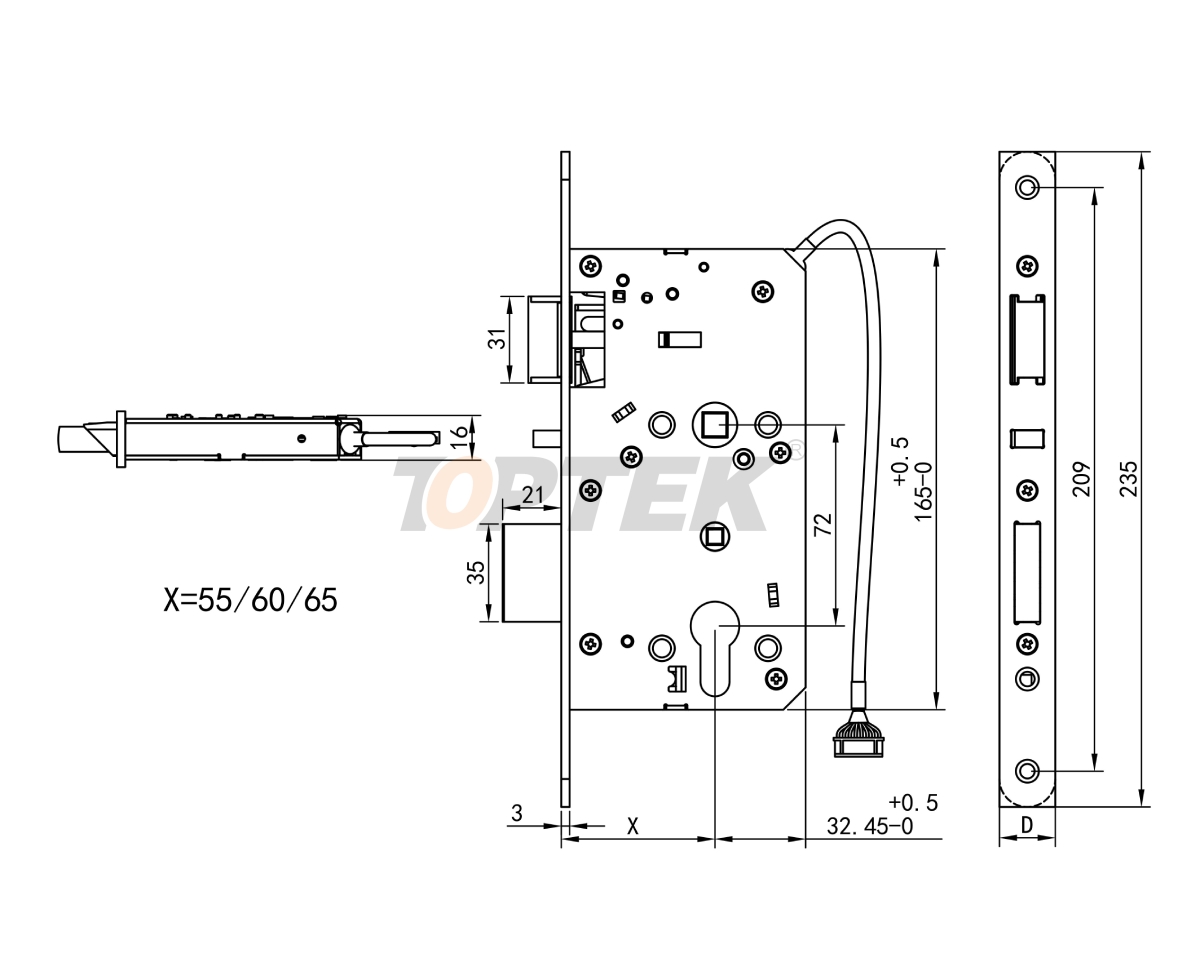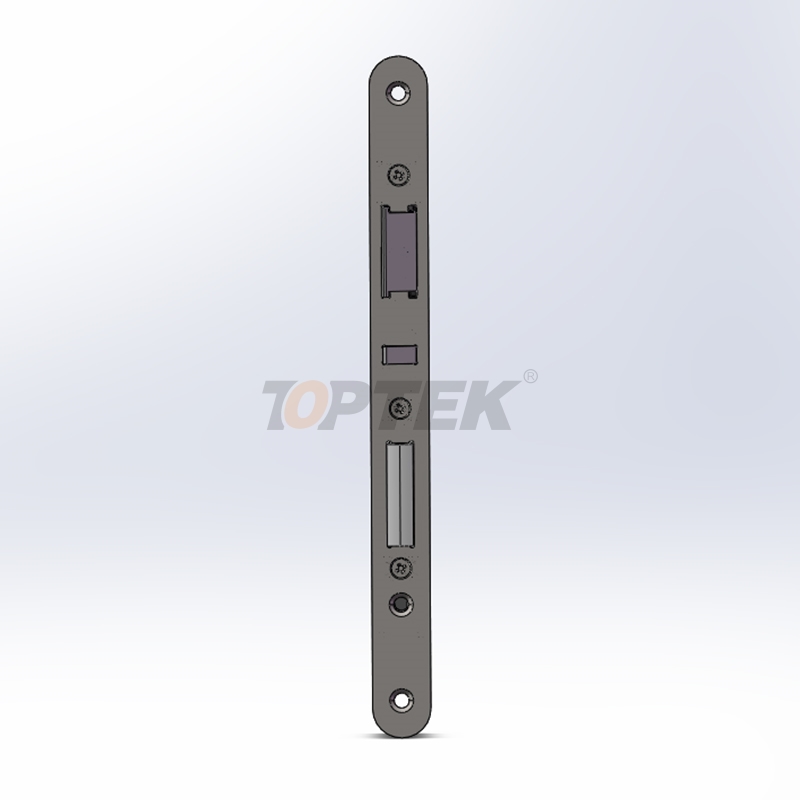When security meets smart technology, the electric lock solution emerges as a vital innovation in access control devices. This seamless blend of safety, convenience, and efficiency has redefined security systems for businesses and homes. But how do electric locks work? And why are they essential for modern access control systems? Stick around as we explore everything you need to know about electric lock solutions and their applications.
What is an Electric Lock Solution?
An electric lock solution refers to a locking mechanism powered by electricity and integrated into electronic access control devices. These locks replace traditional locks by automating the process of securing doors and granting or restricting access based on specific credentials.
From keypad-activated locks and card-based systems to biometric and app-integrated options, electric locks provide a scalable solution to match any level of security need.
Popular examples include:
·Magnetic locks (Maglocks) for high-security buildings.
·Electric strike locks used with intercom systems at offices.
·Smart locks integrated with home automation setups.
Within access control devices, electric locks play a significant role in ensuring a seamless user experience while maintaining a fortified environment against unauthorized access.
How Electric Lock Solutions Work
Electric locks are designed to respond to signals from an access control system. Here's a simplified look at how they work:
1.Credential Verification: The system verifies the credentials (e.g., RFID card, fingerprint scan, or PIN).
2.Signal Transmission: Once validated, a signal is sent to the electric lock, instructing it to unlock.
3.Electric Mechanism Activation: The lock's electric component engages, allowing the latch or bolt to slide and granting access.
4.Automatic Relocking: After a specified time, the lock relocks automatically to ensure consistent security.
Electric lock solutions are practical for high-traffic areas thanks to their automation and fail-safe mechanisms, which ensure operational stability even during power outages.

Applications of Electric Lock Solutions in Access Control Devices
1. Commercial Spaces
Office buildings and coworking spaces heavily rely on electric lock solutions for both security and employee convenience. Keycards and biometric systems are common integrations, offering a streamlined system where permissions can be updated in real-time.
Example Application:
·A corporate office uses RFID cards to grant employees access to their respective department floors while limiting access to confidential areas like data centers or executive lounges.
2. Residential Communities
From gated communities to luxury condos, these locks bring smart, secure access to shared living environments. Electric locks enable residents to access shared amenities like gyms and parking lots securely.
Example Application:
·Smart door locks secure a gated community by requiring app-based credentials to enter the premises and providing visitor entry permissions.
3. Hospitals and Healthcare Facilities
Healthcare facilities require stringent access measures, especially for areas like medicine storage rooms or operating theaters. With the help of electric lock solutions, entry points can be restricted to specific personnel.
Example Application:
·A fingerprint recognition-based lock ensures that only authorized doctors and nurses have access to sensitive areas like the ICU or laboratory.
4. Educational Institutions
Schools, colleges, and universities often use electric lock solutions for campus-wide access control. These locks help secure dormitories, labs, libraries, and administrative blocks.
Example Application:
·A university deploys time-limited access credentials for students to enter exam halls or research labs.
5. Retail and Warehouses
Electric locks are indispensable in retail setups and warehouses, especially for managing entry to cash registers, inventory storage rooms, and loading docks.
Example Application:
·A chain of retail stores integrates mobile-app-controlled electric locks for after-hours deliveries by pre-approved vendors.
6. Hotels and Hospitality
For hotels, electric lock solutions have set a new standard of sophistication. Keycards and mobile app integrations ensure a seamless and luxurious guest experience while ensuring security.
Example Application:
·A boutique hotel uses app-integrated locks, enabling guests to check in and access their rooms via a digital key sent to their smartphones.


Transform Your Security with Cutting-Edge Electric Lock Solutions
Electric lock solutions are no longer reserved for tech-forward businesses or luxury properties. They’re becoming a standard for anyone prioritizing safety, convenience, and smart technology integration. With applications ranging from office buildings to residential complexes, there’s no shortage of ways that this advanced technology can reimagine access control.
If you're ready to enhance your security with an electric lock solution, now is the time to explore smart providers offering customization at scale. Take the next step toward seamless access control and consider the immense benefits it brings to every aspect of your property and business.
Electric Lock Solution
Access Control Device
electrical cam lock
English
العربية
Français
Русский
Español
Português
Deutsch
italiano
日本語
한국어
Nederlands
Tiếng Việt
ไทย
Polski
Türkçe
አማርኛ
ພາສາລາວ
ភាសាខ្មែរ
Bahasa Melayu
ဗမာစာ
தமிழ்
Filipino
Bahasa Indonesia
magyar
Română
Čeština
Монгол
қазақ
Српски
हिन्दी
فارسی
Kiswahili
Slovenčina
Slovenščina
Norsk
Svenska
українська
Ελληνικά
Suomi
Հայերեն
עברית
Latine
Dansk
اردو
Shqip
বাংলা
Hrvatski
Afrikaans
Gaeilge
Eesti keel
Māori
සිංහල
नेपाली
Oʻzbekcha
latviešu
অসমীয়া
Aymara
Azərbaycan dili
Bamanankan
Euskara
Беларуская мова
भोजपुरी
Bosanski
Български
Català
Cebuano
Corsu
ދިވެހި
डोग्रिड ने दी
Esperanto
Eʋegbe
Frysk
Galego
ქართული
guarani
ગુજરાતી
Kreyòl ayisyen
Hausa
ʻŌlelo Hawaiʻi
Hmoob
íslenska
Igbo
Ilocano
Basa Jawa
ಕನ್ನಡ
Kinyarwanda
गोंगेन हें नांव
Krio we dɛn kɔl Krio
Kurdî
Kurdî
Кыргызча
Lingala
Lietuvių
Oluganda
Lëtzebuergesch
Македонски
मैथिली
Malagasy
മലയാളം
Malti
मराठी
ꯃꯦꯇꯥꯏ (ꯃꯅꯤꯄꯨꯔꯤ) ꯴.
Mizo tawng
Chichewa
ଓଡ଼ିଆ
Afaan Oromoo
پښتو
ਪੰਜਾਬੀ
Runasimi
Gagana Samoa
संस्कृत
Gaelo Albannach
Sepeti
Sesotho
chiShona
سنڌي
Soomaali
Basa Sunda
Wikang Tagalog
Тоҷикӣ
Татарча
తెలుగు
ትግንያውያን
Xitsonga
Türkmençe
संस्कृत
ئۇيغۇرچە
Cymraeg
isiXhosa
ייִדיש
Yorùbá
isiZulu

































